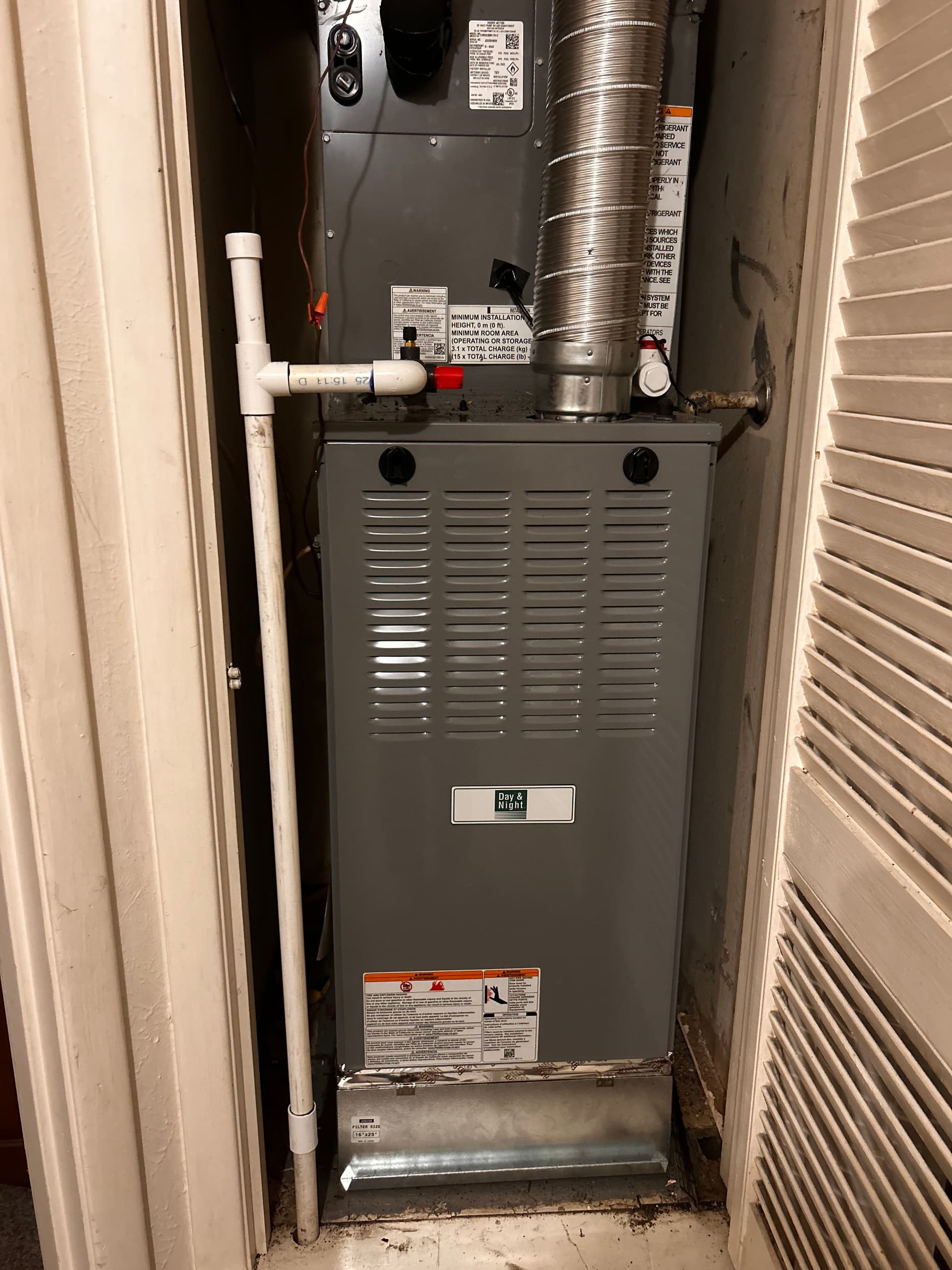
Professional Heating System Repair Services
Offering exceptional Heating System Repair solutions, our team is committed to providing top-quality services to meet all your needs in the HVAC industry.
Heating System Repair Service Overview
At Prestige Air, our Heating System Repair service is designed to ensure that your home heating runs smoothly and reliably. In the chilly winter months of Fort Worth and surrounding areas, it's critical to have a heating system you can trust. Our expert technicians bring 25 years of combined experience, ready to handle any issues your heating system may face.
Why Choose Prestige Air for Heating System Repair?
- Timely Service: We understand the discomfort of a broken heater. That's why we offer same-day quotes and visits to restore your comfort as quickly as possible.
- Trusted Expertise: As a veteran-owned and family-operated business, integrity and excellence drive us. Our team members are certified, licensed, and insured, ensuring you receive professional, top-quality service every time.
- Guarantees: Enjoy peace of mind knowing that we stand by our work with a satisfaction guarantee.
Our repair process begins with a thorough on-site walkthrough to diagnose the problem. By understanding the specific issues with your heating system, we tailor our solutions to suit your needs. We then provide an estimate, so you know exactly what to expect and our payment terms are fair, recquiring 50% upfront.
Comprehensive Repair Solutions
No issue is too big or small for us—whether it’s fixing thermostats, addressing airflow problems, or replacing faulty components, we handle every repair efficiently within a half-day service period. Plus, our local understanding of Fort Worth climate allows us to advise on solutions that best meet your home's needs, ensuring lasting performance.
Contact us at (817) 200-7215 or visit our location at 8208 Northeast Pkwy Ste 109, North Richland Hills, TX 76182 to schedule your heating repair. Remember, excellence is in our DNA, and when you choose Prestige Air, you're choosing a partner that treats you like family.
Related Projects
Our Heating System Repair Process
At Prestige Air, we pride ourselves on delivering efficient, reliable heating system repairs with a personal touch.
Initial Inspection and Diagnosis
Our certified technicians begin by performing a thorough inspection of your heating system to identify the issue. We use cutting-edge diagnostic tools to ensure an accurate assessment.
Personalized Repair Plan and Quote
Once the problem is identified, we discuss repair options with you and provide a detailed estimate. Our experienced team ensures transparency and clarity at every step.
Efficient Repair Execution
We schedule a convenient time for the repair and bring all necessary parts and tools. Our efficient workflow allows us to complete most repairs within half a day.
Final Testing and Customer Walkthrough
Upon completion, we conduct rigorous testing to ensure optimal heating performance. We'll walk you through the repairs done, providing tips for future maintenance and answering any questions you may have.
Heating System Repair FAQs
Get Quick Answers to Your Heating Repair Questions
- What should I do if my heating system stops working suddenly?
If your heating system fails unexpectedly, we recommend checking the thermostat and circuit breaker first. If those seem fine, call Prestige Air at (817) 200-7215. Our team offers 24/7 emergency services to get your system running quickly.
- How do I know when my heater needs a repair?
Signs your heater may need repair include strange noises, uneven heating, or increased energy bills. If you notice any unexpected changes, it's best to have a professional from Prestige Air assess the situation.
- What types of heating systems do you repair?
Our experienced technicians repair a variety of systems, including furnaces, heat pumps, and boilers. Whatever the make or model, we've got the expertise to handle it.
- Why should I choose Prestige Air for heating repairs?
Choosing Prestige Air means hiring a licensed, insured, and veteran-owned family business. With our combined 25 years of experience, excellence is in our DNA.
- Do you offer any guarantees on your repairs?
Yes, we stand behind our work and offer guarantees to ensure you receive reliable and quality service every time.
- How quickly can you repair my heating system?
We provide same-day quotes or visits and typically complete repairs within a half day, getting your home cozy again swiftly.
Warmth from Happy Homes
Hear how Prestige Air keeps families cozy and content
The team at Prestige is great start to finish. Very up front about all the pricing and keep you notified of all appointments and they stay on schedule. The service crew are very professional and answer any questions that you have along the way. We recently had 2 new units installed and everything was great start to finish! I highly recommend Prestige Air.
Transparent on price and options. Called 2 other places for their options and estimates, this place was the more affordable option
I scheduled an appointment with prestige Air and I will definitely will refer them to my friends and family. He got here on time and checked the air and heater. He answered all my questions. He took the time to explain everything to me. He did a great job! ⭐️⭐️⭐️⭐️⭐️ Thank you so much for the great service!
Ensure Your Home Is Warm This Winter
Contact us now for reliable heating repairs. Act fast to secure your appointment with Prestige Air!





